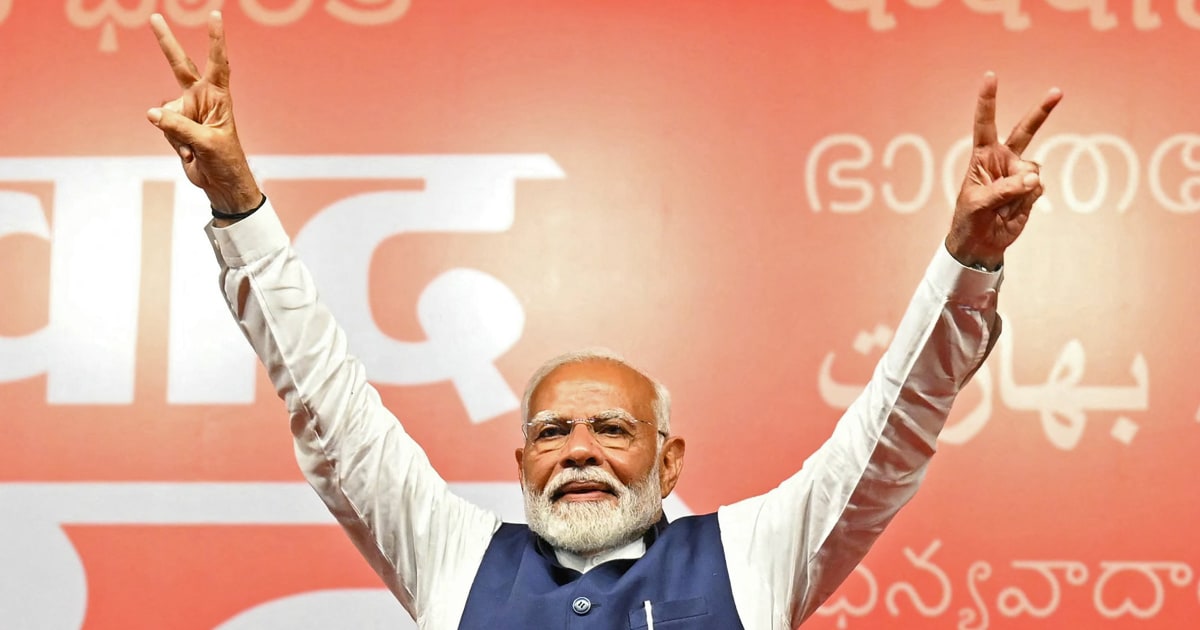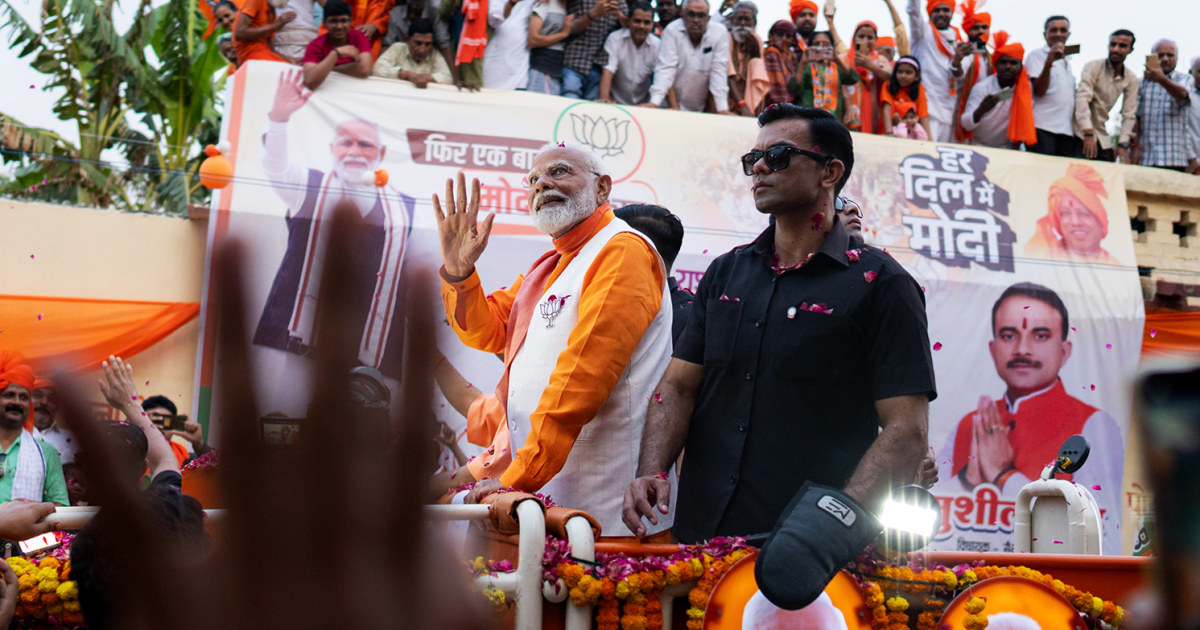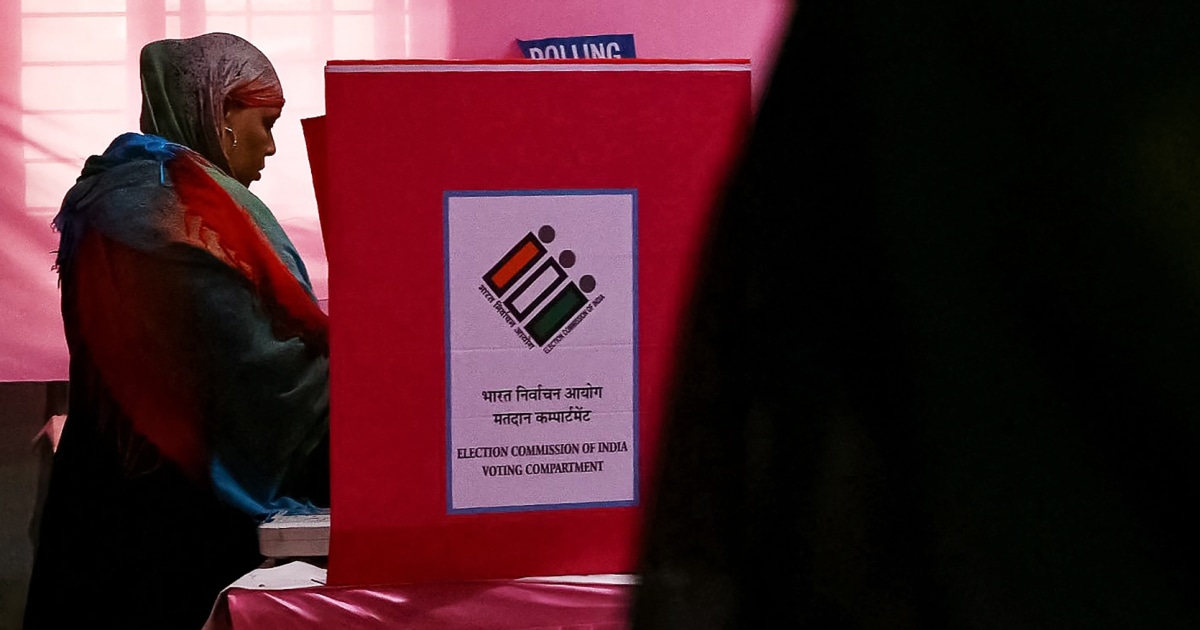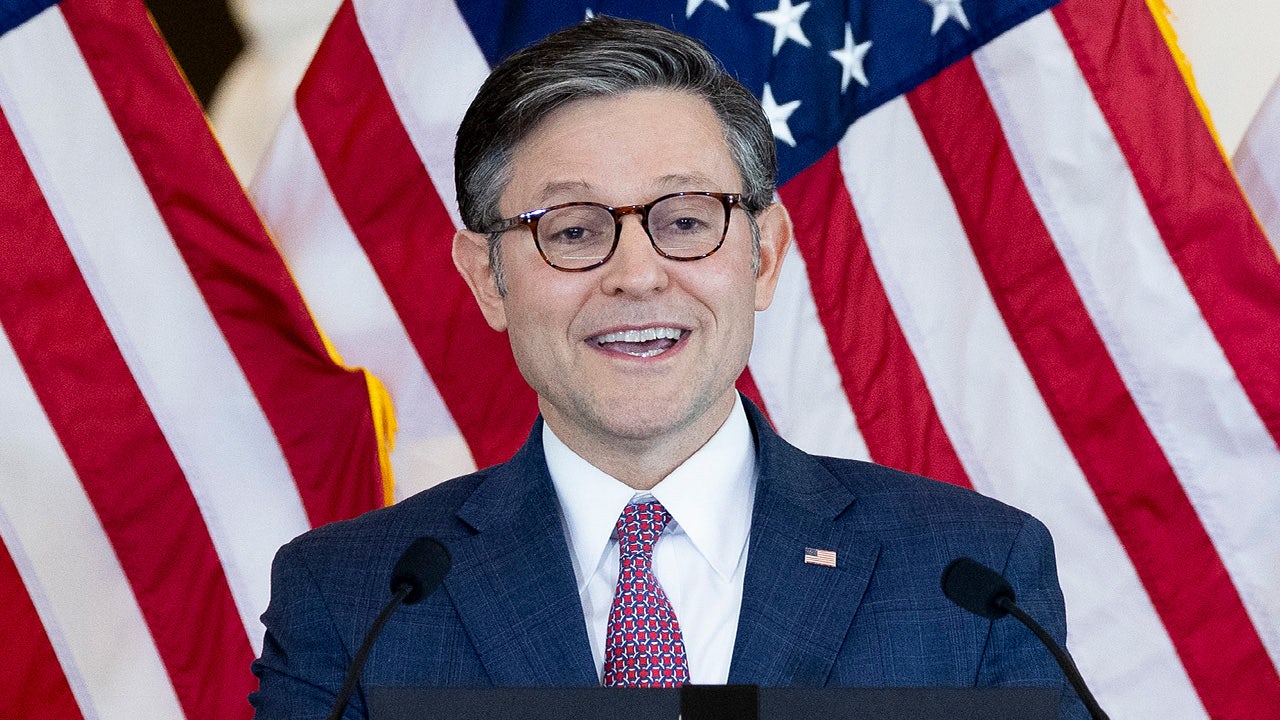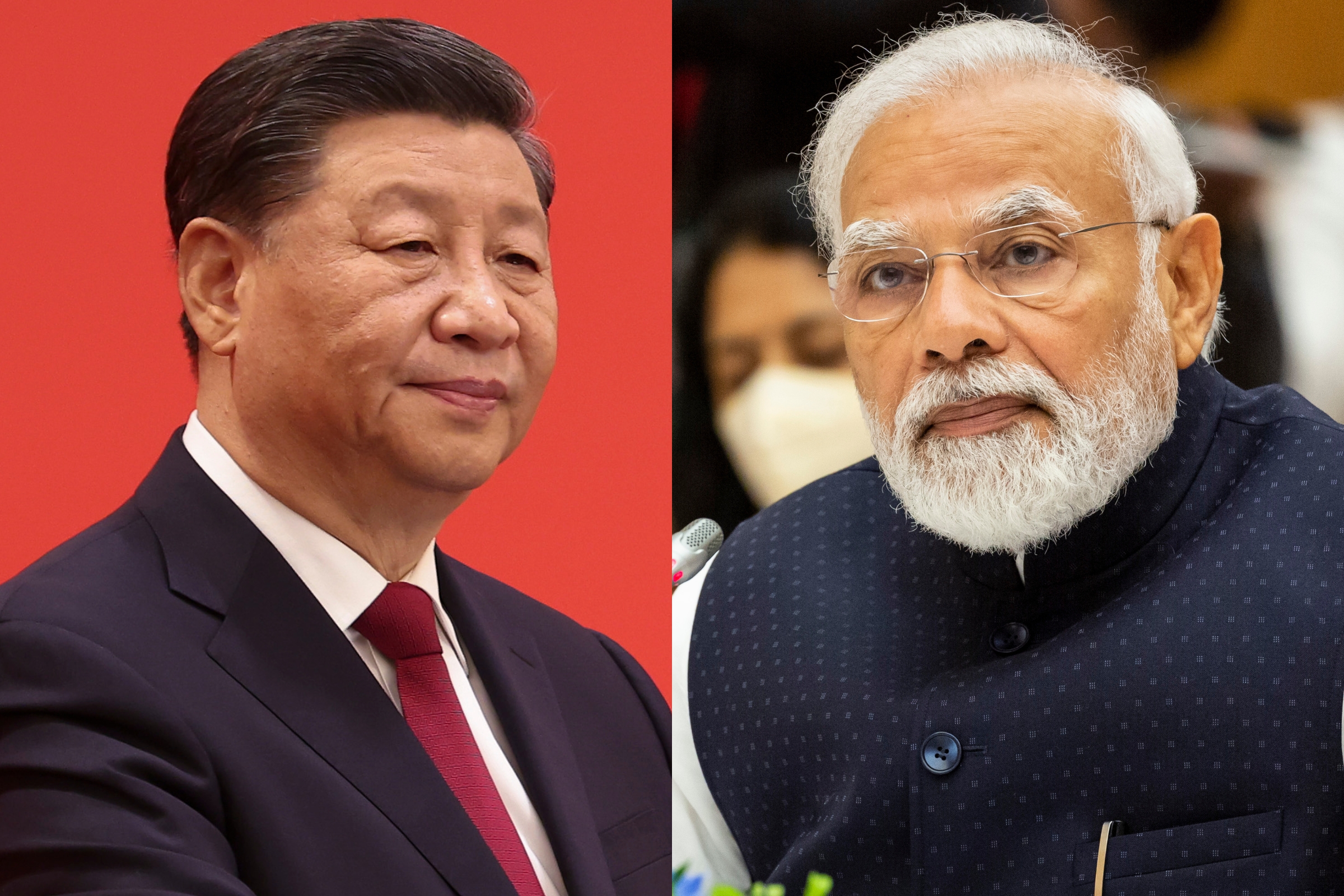NEW DELHI — Until now, Indian Prime Minister Narendra Modi had seemed unstoppable.
Modi and his Bharatiya Janata Party (BJP) had come to dominate the world’s biggest democracy since coming to power 10 years ago, their Hindu nationalist politics becoming ever more entrenched in India along the way. Even as critics accused him of stoking religious tensions, eroding human rights and muzzling the press, Modi was consistently rated as the most popular leader in the world.
It was only in January that Modi, 73, inaugurated a grand Hindu temple on a contested holy site in the northern city of Ayodhya, fulfilling a longtime promise to supporters and stirring fear among India’s Muslim minority, who have found themselves increasingly marginalized under his rule.
It was a crowning moment for Modi that was expected to help him win favor with voters in Hindu-majority India as he sought a rare third term and a supermajority for his party in an election this year that was widely predicted to be a landslide.
On Tuesday, as early vote counting showed a far narrower result that was a shocking rebuke to Modi’s rule, the constituency that includes Ayodhya was among those the BJP conceded to the opposition.
Far from winning the supermajority of 400 seats it had promised, the BJP won 240 out of 543 seats in the lower house of India’s Parliament, according to final results, far short of the 272 needed for a one-party simple majority like the ones it easily secured in the last two elections in 2014 and 2019. But together with allied parties, the BJP has enough seats to form a coalition government and secure Modi a third five-year term.
On Wednesday, the Indian government said Modi and his cabinet had resigned as is standard practice after an election, with India’s president requesting that they remain in charge until a new government is formed. He and his new cabinet are scheduled to be sworn in on Saturday, local media reported.
Still, the election feels like a defeat for Modi and his ethnonationalist agenda — and a stunning victory for the opposition, which has struggled to gain traction for years and on Tuesday hailed the comeback of multiparty democracy.
“It’s rejection of a politics of hate,” said Rajeev Bhargava, director of the Institute of Indian Thought at the Jawaharlal Nehru University in Delhi.
“Ordinary Hindus and Muslims have lived together peacefully, and they don’t like divisions being created,” he said.
India’s fractured opposition knew defeating Modi was not going to be easy, forming an alliance that looked shaky during the campaign. Their troubles were further compounded by the arrest of party leaders and the freezing of party funds for which they blamed the BJP, which denied the allegations.
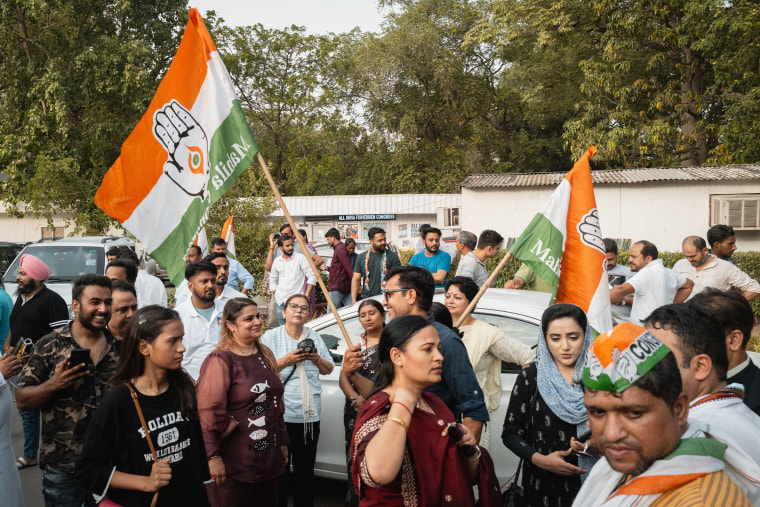
So it was especially sweet when election results began to show their efforts paying off. Leaders of the Indian National Congress, the main opposition party, said the BJP had made the election a referendum on Modi, and that the setback he had been dealt by voters was a “moral loss.”
“In my mind, I knew that India’s population will stand united for the constitution,” Congress leader Rahul Gandhi told reporters Tuesday. “Today this was proven right. I had faith.”
Gandhi had left open the possibility of peeling off two of the BJP’s allied parties and preventing Modi from forming a coalition at all, but on Wednesday both parties pledged their support for him.
Others were more surprised by the results, including a pollster who cried on television while being grilled about how his predictions of a BJP blowout could be so far off. India’s benchmark stock indices, which had soared on Monday after exit polls suggested a huge Modi win, had their worst day in four years on Tuesday before recovering some losses on Wednesday.
Members of the BJP, meanwhile, took the results hard as their dreams of a Hindu-first nation appeared to fade. The party headquarters in New Delhi, where the mood was supposed to be triumphant, had mostly emptied out by 8 p.m., though many people returned shortly after when Modi arrived to speak.
He was quick to claim victory, in a speech that emphasized the broader alliance rather than the BJP alone.
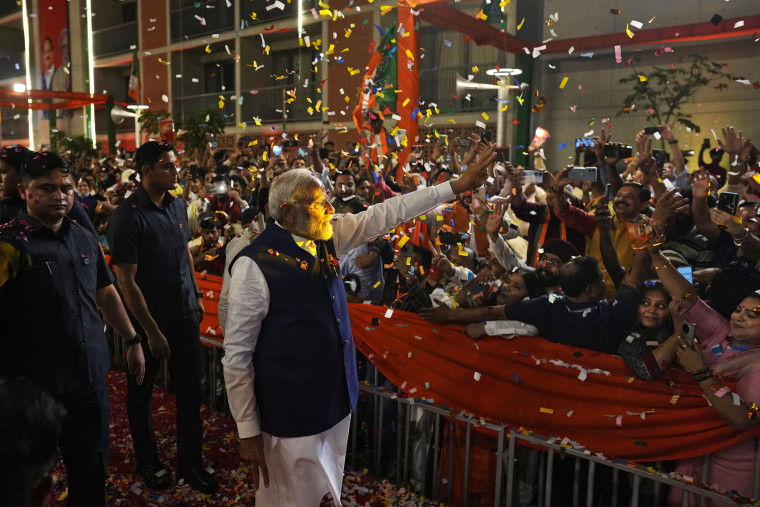
“This is the first time a government has come back for the third time,” Modi said as supporters chanted Hindu nationalist slogans.
On the campaign trail, Modi and his deputies had been accused of using hate speech and other inflammatory rhetoric, especially against Muslims. The opposition, meanwhile, focused on issues such as unemployment that are plaguing India even though it is the world’s fastest-growing major economy.
Economic issues were repeatedly mentioned by voters NBC News spoke with in the last days of the election.
Regardless of who runs India, Bhargava said, from now on “there will be more focus on genuine material improvement in the lives of ordinary people.”
“And governments that fail to do it will be thrown out.”




